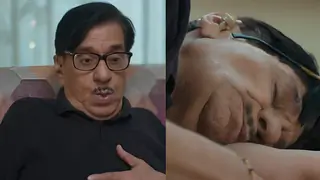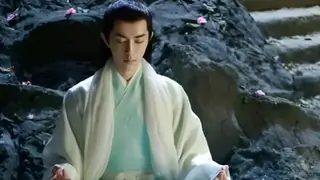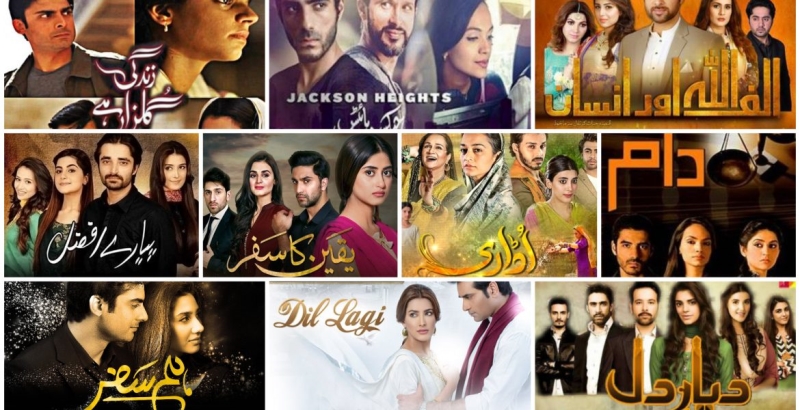How Yakeen ka Safar's Asfandiyar is the leading man Pakistani dramas desperately needed
Pakistani dramas are frequently based on Urdu novels that are about women, written by women, and catering to an audience of mostly women.
But by focusing on strictly female-oriented storytelling, dramas often wind up doing a disservice to our industry's male actors who, despite being immensely talented, rarely have these talents tapped into.
Indeed, these men are often relegated to a footnote of a script that is too busy focusing on either a social ill that plagues women or, at its most base, centers on saas-bahu melodrama. As a result, male characters in dramas are too often distilled into one-dimensional, static characters -- men who exist only as heroes or villains, or, as the female character's biggest obstacle or ultimate destination.
TV serial Yakeen Ka Safar is the first drama in a long, long time that has done justice to its male cast by giving them a chance to explore roles that are more challenging and complex than simplistic heroes and villains.

YKS tells a compelling story. It deftly stitches together disparate topics like the meaning of a life lived in a maddeningly misogynistic society, or what it's like to be torn between familial duty and self-determination, and, perhaps most importantly, how we must all inevitably look death in the face someday; whether it is our own or of a loved one.
Much like Udaari and Sammi (two recent, socially conscious dramas that are also peppered with public service messages), the drama comes with a built-in moral compass. Like its contemporaries, at its core YKS, which begins with the problem of gang rape and ends with a spotlight on domestic abuse, is a drama focused on social reformation through the reshaping of social narratives.
But unlike its contemporaries, YKS conducts its social commentary with more relatable and realistic precision.
So, where dramas like Udaari forcefully turn their victims into warriors, those who are victimized in YKS respond in more measured, more relatable ways.
For instance, the show's female lead, Zubia (played by Sajal Aly), who loses her mother in a horrifying way, has her heart broken in an equally horrifying way, and is then shunned by everyone she knows, doesn't just sit down, doe-eyed waiting on her heroic rescue. She goes to medical school, gets qualified and gets out of town.
But even more striking is how YKS gives its male lead, Asfandyar (played by Ahad Raza Mir) a narrative arc that is equal in both the challenges he faces and the complexity of his character in relation to his female counterpart, Zubia.
Asfandyar is traditional but progressive, modern yet cultural, culturally attuned but also refreshingly devoid of the stereotypical, patriarchal mentality that unfortunately continues to plague drama serial storytelling.
Not only is Asfandyar's journey a beautifully written, sobering reflection on a life that has reached a turning point, Asfandyar is the male character our industry didn't know it needs.
Even though a couple of moments feel a little overwritten -- like Asfandyar's frequent angry outbursts aimed at Zubia and the entirety of the hospital staff wouldn't fly in most professional settings or would see at least some people quitting and leaving -- the script still does a tantalising job of showing a man in transition from young and fun to a more toughened, more sardonic man who is, at all times, occupied with trying to conceal how hurt he is or how in love he is.
The best part about Asfandyar is that with every episode the best of his character is yet to come.
In Mir's own words, Asfandyar is "suffering from some sort of PTSD. He goes from a happy-go-lucky guy to the meanest person you could meet. YKS is [his] literal safar (journey).
Because Asfandyar, unlike male leads in other dramas with a similar backbone, has a dedicated narrative arc unto himself, Mir is able to deliver a thoroughly sympathetic and mature performance.
And, as he tells me in our phone interview, his understanding of Asfandyar's character is not simply a byproduct of a great actor responding to great script.
"The male lead is different here because he is broken down to his basics. He's not a romantic hero or written into the drama to be something to a woman's character. He's a man, a person, who is going through a rough patch in life, explains Mir who, alongside director Shahbaz Kashmiri, put in countless hours understanding, inventing and then reinventing the character of Asfandyar.

"[In Pakistan], actors have to be prepared for anything because the directorial style is so different. We don't always have a margin to communicate with directors. But Shahzad Bhai is different. He would listen for 20 minutes as I tried to convince him to do [or not do] certain things [with the character], says Mir.
One day, this led to Mir removing almost nearly three whole pages of text based on the original Farhat Ishtiaq novel not because it wasn't good but because the words were not doing service to the vision of Asfandyar that Kashmiri and Mir worked so hard to create.
The end result is not only an interesting and complex male character but a new type of man that the industry has yet to fully latch onto.
Asfandyar is traditional but progressive, modern yet cultural, culturally attuned but also refreshingly devoid of the stereotypical, patriarchal mentality that unfortunately continues to plague drama serial storytelling.
In short, Asfandyar is a long overdue, well-deserved treat.
And just as satisfying is the way in which him and ridiculously talented Sajal Aly's character, Zubia, negotiate and navigate a love story which is, frankly, an unprecedented type of on-screen love as far as Pakistani dramas go.
The drama does a low-key yet persuasive job of bringing together two fully developed, complex, and self-reliant characters together.
Even though the script can't help but pepper this love story with some of the tried, tested and true melodramatic crutches (like the above-mentioned relentless angry outbursts along with some brief yet, arguably, necessary love triangle drama), for the most part the drama does a low-key yet persuasive job of bringing together two fully developed, complex, and self-reliant characters together.
Where some of the grander love stories of our time, like Humsafar, fail to provide even the most threadbare foundation of a couple's relationship, YKS gives us love coupled with a lesson: love is enough if you can leave your emotional luggage at the door.
Most drama love stories feature a formulaic approach in which a couple comes together only to face a massive upheaval that rips them apart (take note: Humsafar) but who then quickly recuperate because even though their underlying issues with each other are not actually resolved (take note: Udaari) the parties are both extremely physically attracted to one another and so are obviously ready to take on the crazy journey that is marriage.
But the story of Asfandyar and Zubia is strikingly different.
Like most of us regular folks, both Asfandyar and Zubia have loved and lost before. Asfandyar was once engaged and madly in love. Similarly, Zubia was also madly in love -- so much so that she almost ran away from home (and is almost sexually assaulted by her rogue lover in the process).
And, like most of us regular folks and unlike dramas which still idealise a warped and unattainable ideal of the untouched, virtuous woman Asfandyar eventually comes to know the sordid details of Zubia's past.

SPOILER ALERT
And, like most of us regular folks -- and unlike basically every drama ever made in the history of Pakistan -- he spends time contemplating her past, calmly tells her he know everything and acknowledges all that she has clearly been through after which he proceeds to wait for it accept her unconditionally and move right along.
That the drama chose to deal with this cataclysmic event (i.e. the male lead discovering the secret past of his romantic interest) in a blink-and-you'll-miss-it fashion, that too in the very last episode -- left me with my mouth hanging open.
Indeed, it was so unfathomable to me that a desi drama would deliberately forego the usual three-episode arc of tears, yelling, accusation-hurling and name-calling that is pretty much guaranteed once a drama's hero finds out his heroine may not be as pure as he expected, that I wound up Whatsapping Mir the same question worded in about ten different ways.
"As a society we have to get over this double standard and s**t-shaming, which is so prominent - even in my line of work," says Ahad Raza Mir
Lucky for me, Ahad Raza Mir is a very patient man. Despite being in Gujranwala on shoot for an upcoming Partition-themed script, Mir gets on the phone with me so that I can try and better understand just how absurdly progressive and unprecedented this script angle is.
"Should we have spent more time on resolving her past? Mir repeats the question I pose to him, following up with: "Who cares. He realizes he loves her, no matter what. As a society we have to get over this double standard and s**t-shaming, which is so prominent - even in my line of work. Sure, there could have been more closure, more dialogue in that final scene but I focused more on Asfandyar's character than making a perfect and pretty romance, Mir says. "Ironically, the less it was about their romance, the more it became about that.
Because a story can only be as good as the people it's about, it's the people of YKS that make this story so damn good.
For the most part, drama creators know how to appeal to Pakistani society's basic instincts (for example, some things we love include susraal drama, explaining bad luck away as jinns or nazr, cousin marriages, and a good/evil sister duo).
But YKS does more than just reel us in by appealing to these basic instincts.
It forces us on a journey alongside the characters and their cataclysms. It does this with a radical softness and a measured intentionality. Even though we are dragged through the murk of Asfandyar and Zubia's griefs, sorrows, and, joys YKS -- like life itself -- bring us back: full-circle, healed and still hopeful.





















1.2k